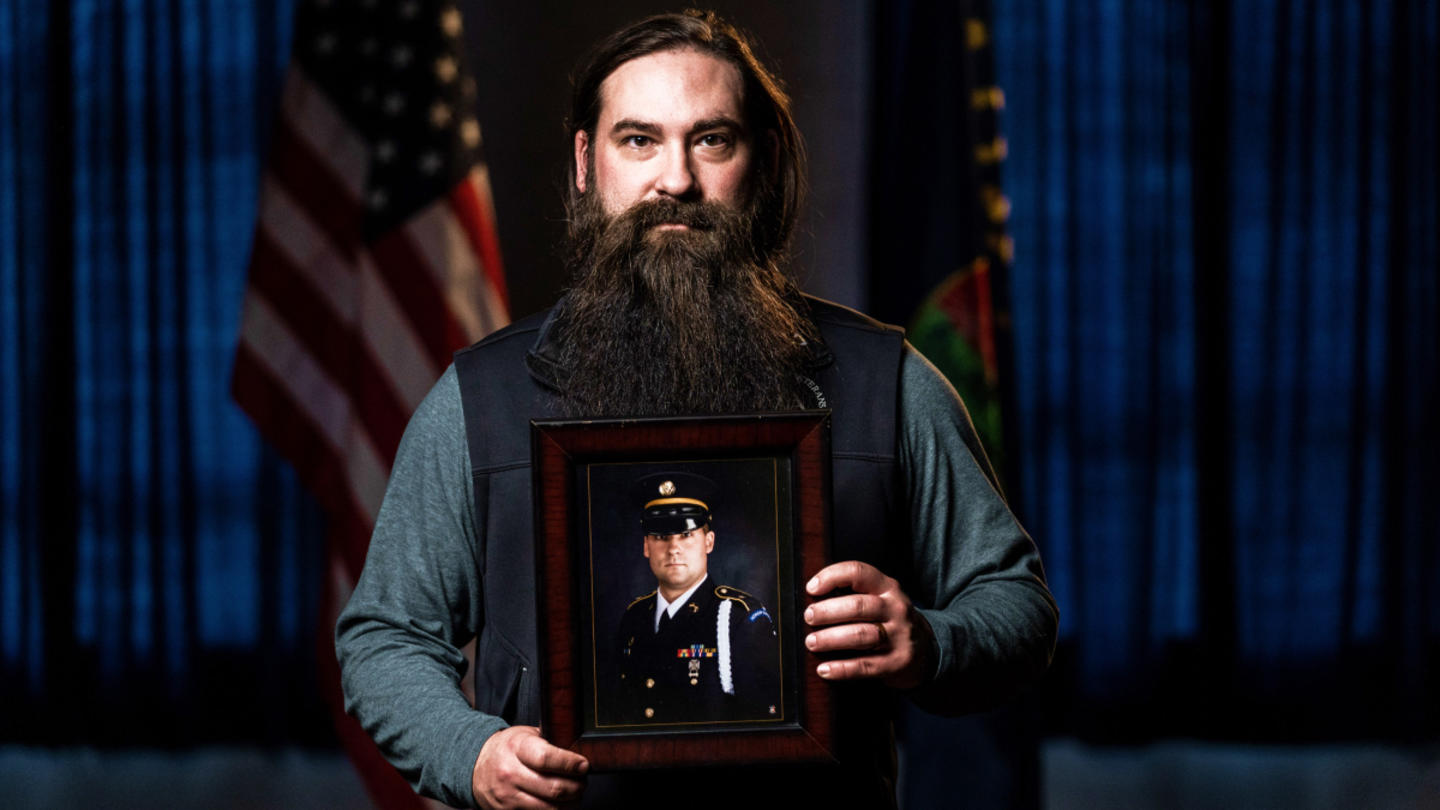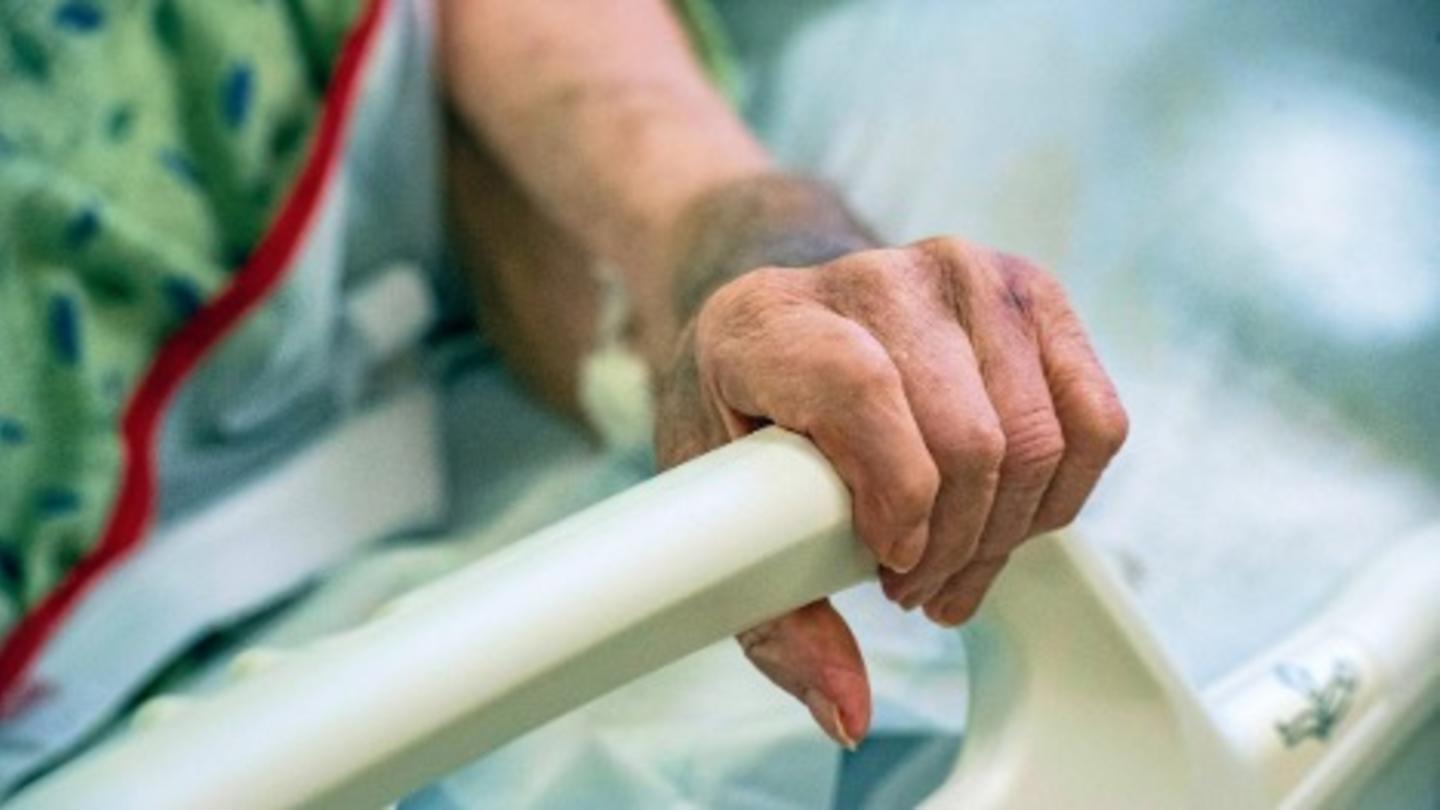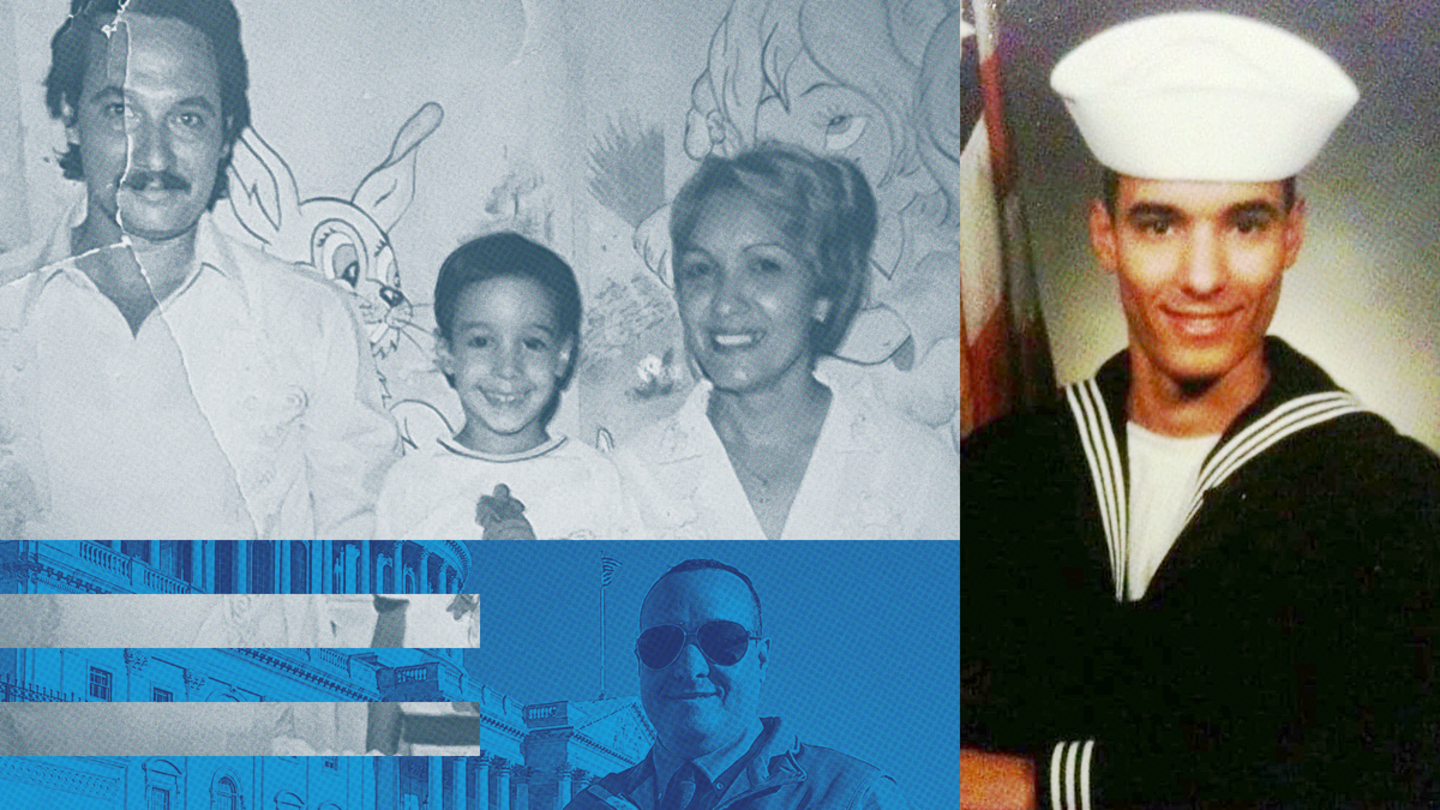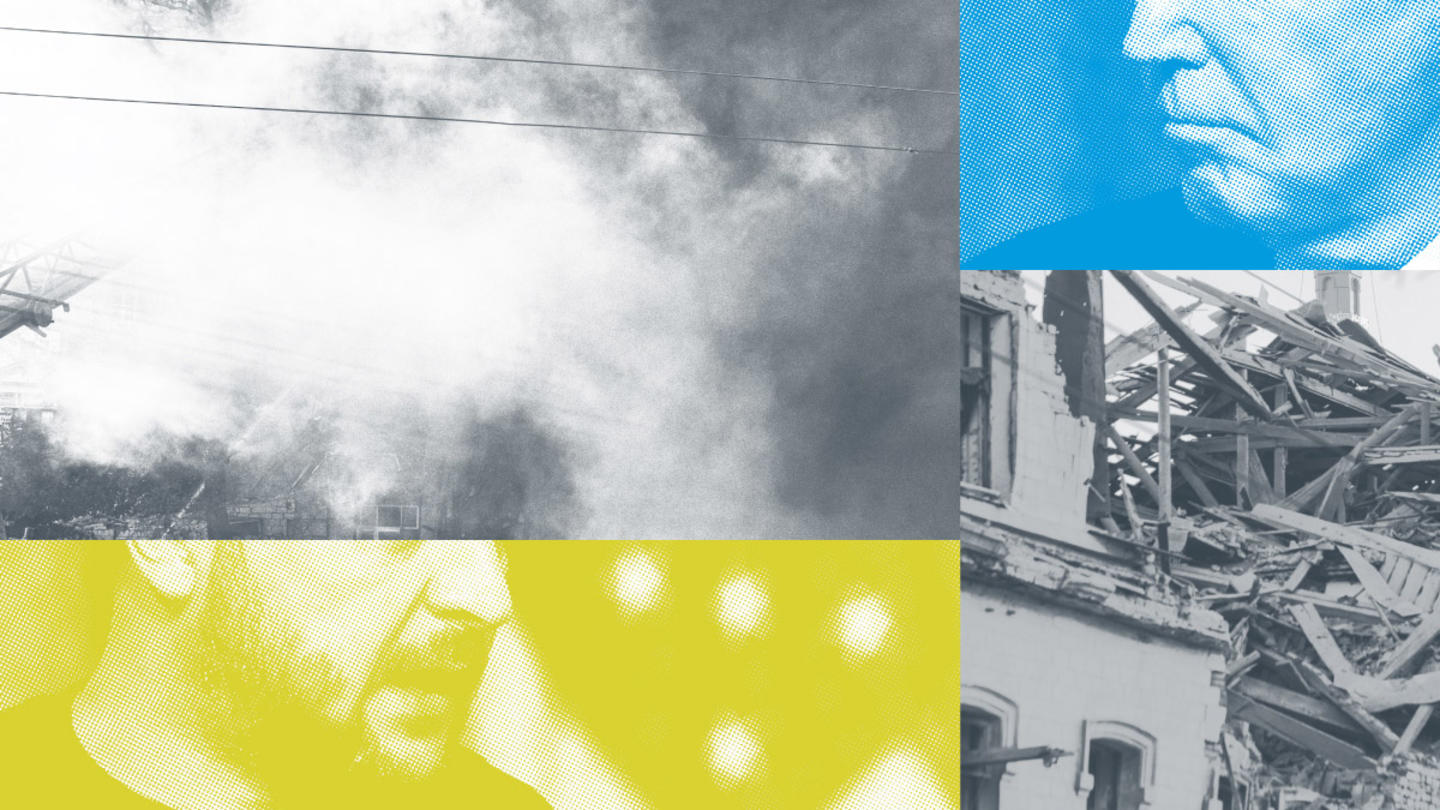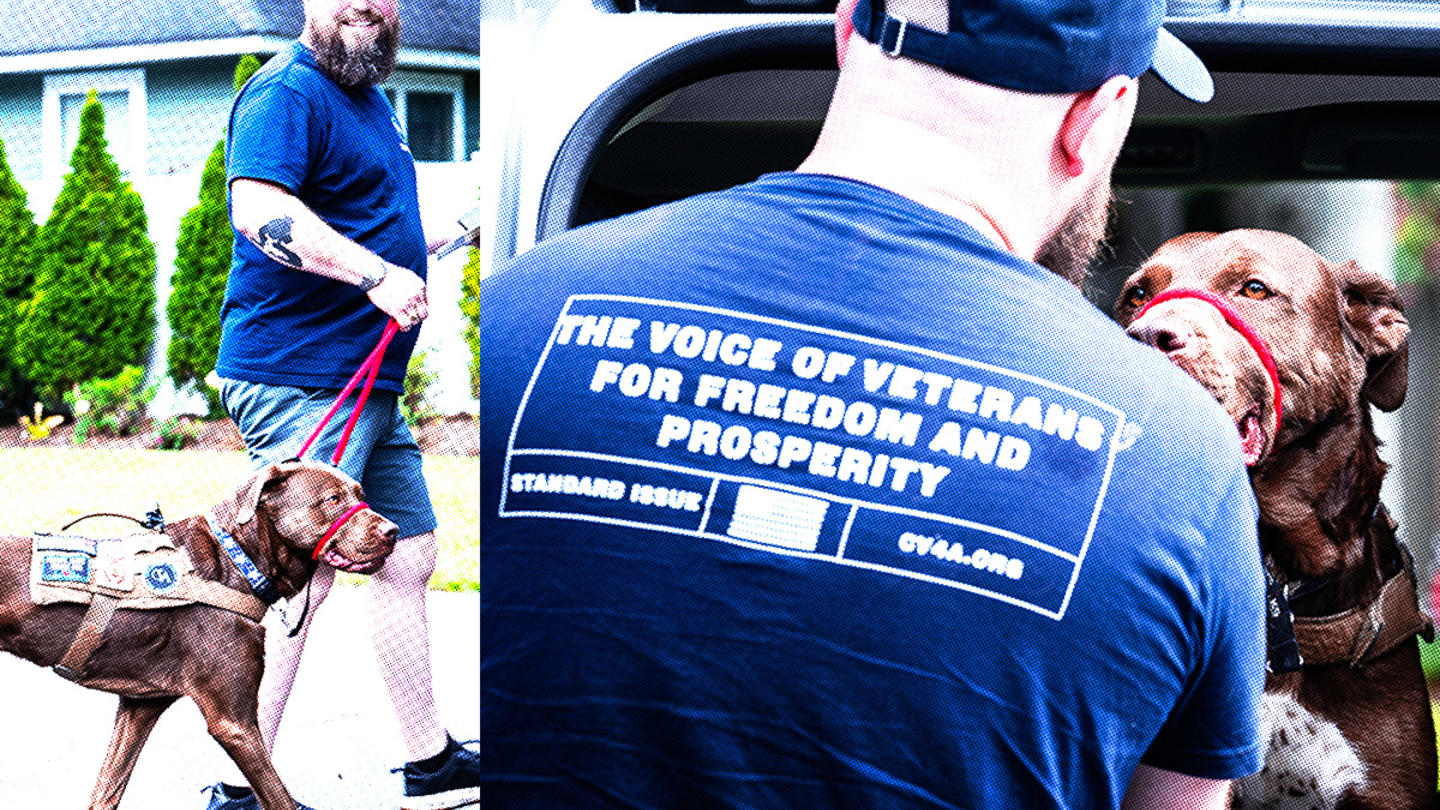Chris Enget has a calm, unassuming presence. You may not know right away that Chris has been through unimaginable hurt, but after just a few moments talking to him, you know his demeanor is that of a man who has faced many trials and come out stronger and better on the other end.
After a difficult childhood, injuries that earned him a Purple Heart in Afghanistan, and several suicide attempts after serving, Chris uses his experiences to inform how he empowers and advocates for others.
Chris is a strategic director in Montana for Concerned Veterans for America, which is part of the Stand Together community. He spends his days building a community of veterans and their families with a mission to defend the freedom fought for in uniform while empowering veterans to live healthy, prosperous lives.
Part of that work includes taking an honest look at American foreign policy and the effects of foreign policy decisions, both on the world and on the military community.
August marks the second anniversary of the end of the Afghanistan War, a conflict that cost Chris literal blood, sweat, and tears. We asked Chris to talk about his military experiences, his transition out of service, and how he finds purpose in his work with veterans.
Why did you initially join the Army?
I had a hard childhood that kind of drove me into my best option for escape.
I decided to join the army to get away from an abusive stepfather. At 17-years-old and dirt poor, I knew that enlisting would be my ticket out of my home and give me potential to go to college without incurring a ton of debt.
When I got back from basic training as a 17-year-old, I moved out, got a full-time job to pay my bills, and finished my senior year of high school. Then after graduation, I was off to advanced individual training.
It was a chaotic beginning of my service to say the least.
Did the chaos continue while you were serving?
Yes, there were a lot of difficult moments while I was in the Army.
From 2007-2012, I was tasked with doing military funeral honors – the traditions carried out at a service member or veteran's funeral. That includes the uniformed personnel who are there, the presentation of the flag to the family, "Taps" being played, etc.
From the beginning of my military career, I saw soldiers coming home in caskets and the pain their families were enduring. I had my own young family, so all those experiences together made me very trepidatious about deploying.
I did end up deploying to Afghanistan in 2012 as military police. I'm lucky that I came home in one piece, more or less, but I didn't leave Afghanistan unscathed.
What injuries did you sustain in Afghanistan?
I was hit by a rocket propelled grenade six days after arriving in Afghanistan. The explosion happened right by my bed, and I didn't even realize I'd been hit because my adrenaline had kicked in. I just remember jumping up, grabbing my rifle and boots, and getting to work.
A few hours later, things had kind of calmed down, and that is when the pain started to set in. One of my guys told the medic I needed to be checked over, and a few hours later I was getting shrapnel removed from my foot.
But I didn't want to get sent home away from my guys, so I refused being sent to Germany for more care and just kind of dealt with the pain. I dealt with five months of that until our unit was drawing down and I got sent home.
I earned a Purple Heart for those injuries.
What is it like thinking back on your experiences in Afghanistan and the war in general?
Our mission was to train Afghan police, but you kind of knew the majority of them didn't want to be there. It was a paycheck for a lot of them, and we had to constantly worry about Taliban infiltration and "blue on green" attacks, which were attacks from the Afghan police we were training.
I'd even talk to some men who would say as soon as the Americans left, they would be going back to live as usual.
I saw with my own eyes that nation building wasn't working. When the withdrawal was finally happening, I was happy we were getting out, but I struggled a lot with what it meant and whether what I did mattered.
Service doesn't just equal physical injury and mental injury but also moral injury. To take stock of everything you did and saw is hard enough. To see all the work you did crumble in just a few weeks like we saw in Afghanistan was almost unbearable.
I've been through a long journey healing from my time in Afghanistan, and I'm just grateful I was already in a place mentally that I could not only work through it myself, but help other veterans process the withdrawal and look toward the future.
And what does that future look like for you?
For me, it's a personal mission to be a voice for the veterans who aren't being heard. That is why I joined Concerned Veterans for America, to share what I've gone through and show that there is a better way.
In regard to Afghanistan and how the United States "does war", accountability is needed on all levels. The way the withdrawal happened of course needs to be addressed, but there were 20 years of mistakes and lies that military leaders and politicians need to be held accountable for. We should never again be in a situation where leadership at the very top doesn't understand the mission or even who the enemy is. To just kind of let it fade into our collective past does a disservice to people like me who were injured and the men and women who sacrificed everything and were killed there.
I also want to be a voice for veterans' issues. Veterans' issues are America's issues.
I struggled a lot when I transitioned out of the service – my marriage was ending, my war injuries required surgery, the VA botched my surgery and treated me terribly, my mental health was so poor that I attempted suicide. And unfortunately, this is the story for many veterans.
What really helped me was owning where I was at and finding the support system I needed to move forward.
How has that support gotten you to a better place today?
First, I was able to start getting mental health treatment from a doctor outside the VA. That has been huge for me, and it's something I'm working to make sure other veterans have access to as well.
But I also invest a lot in building communities of veterans, here at home in Montana and around the country, who want to continue "serving" and being positive influences for each other and those around us. And also communities of non-veterans who want to give back and work with us.
I listen to veterans talk about their struggles and help elevate their stories to find a solution. I also share what I'm learning about alternative kinds of therapy and empowerment for veterans to live really fulfilling lives after service – hiking, hunting, exercise, community service, advocacy, activism. All these things are unique ways to fulfill us and help us find new purpose after giving so much of our lives to a higher calling in the military.
Veterans aren't broken victims. We have so much to offer in our civilian lives if we're empowered to do it.
As part of the Stand Together community, Concerned Veterans for America advocates for the freedom and prosperity that veterans and their families fought to defend.
Learn more about Stand Together's foreign policy efforts and explore how to partner with us.
